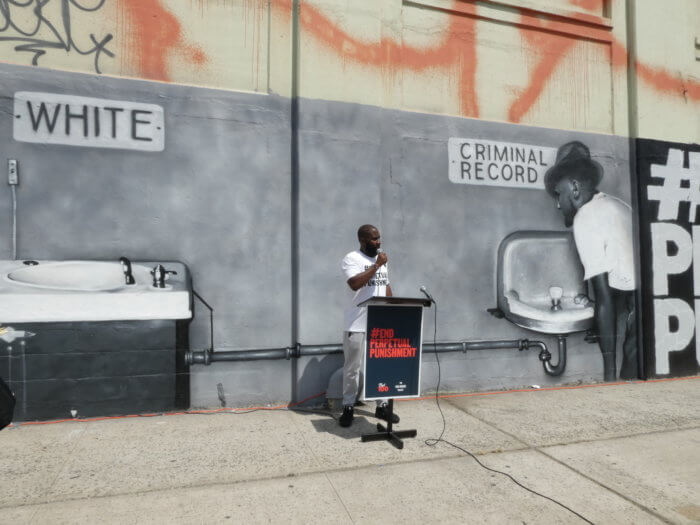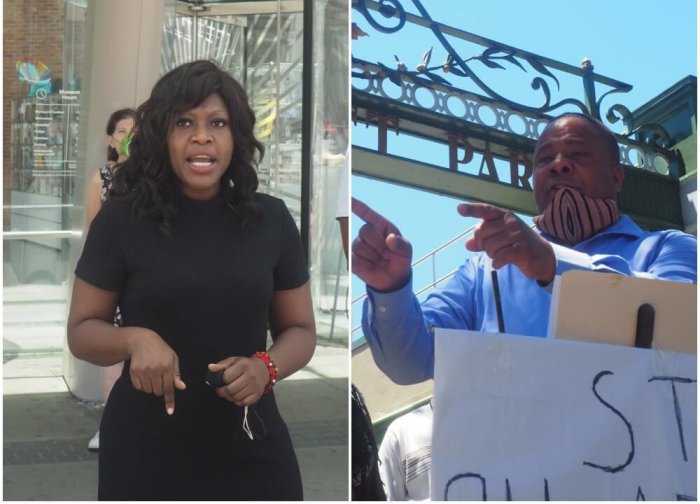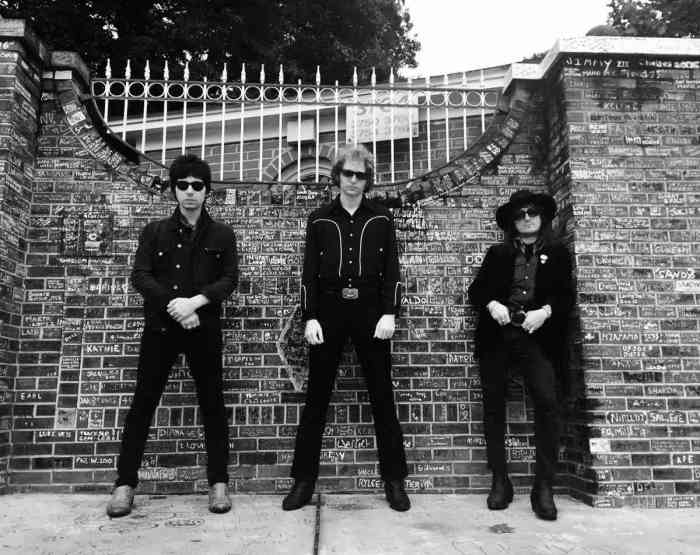A new mural in Bedford-Stuyvesant aims to bring attention to the challenges faced by formerly incarcerated people in America.
The mural, painted by artist Damien Mitchell on Atlantic Avenue and Perry Place, is part of the End Perpetual Punishment campaign spearheaded by entrepreneur Michael “Zaki” Smith, a Bedford-Stuyvesant native who said the mural’s location in the neighborhood was special to him.
“It’s my home,” said Smith. “It’s very important to me that this piece exists in Brooklyn.”
The mural is the first of a series that will be installed in communities with high rates of incarceration.

The mural — which portrays a Black man drinking from a water fountain marked “Criminal Record” across from an unused whites-only water fountain — illustrates the “Jim Crow-like restrictions” Smith says formerly incarcerated Americans are forced to navigate.
Every year, federal and state prisons release 620,000 people from prison, according to Department of Justice statistics. Once they’re released, they are subject to 44,000 individual laws and regulations that limit their access to employment, housing, voting, education and other rights, which often leads to recidivism, criminal justice experts believe.
Smith, who is formerly incarcerated, said he hopes the mural educates the community on the challenges faced by those with a criminal record, and encourages those who have criminal records to question why they are caught in a cycle of punishment.
“[The goal is] for them to reconsider, and question ‘why am I being continuously punished forever even though I have served my time?’” he said.
Smith, who launched the End Perpetual Punishment campaign after being let go from a job at a high school in New Jersey due to his criminal record, sees the mural as an entrance point for formerly incarcerated New Yorkers to be not only welcomed back into their communities but included in policy discussions they have historically been left out of.
“The people most affected by policies are almost never involved in the shaping of policies that would be of benefit to them,” Smith said. “This is a way of educating the community and also bringing them into the conversation around the power that they have.”























